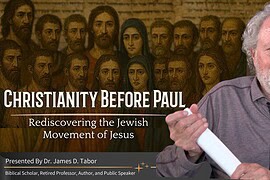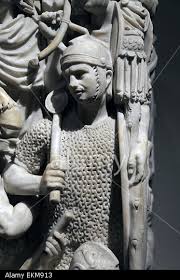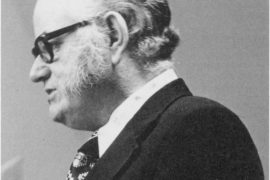Readers of the New Testament often assume that the idea of Jesus being “raised from the dead” must of necessity imply a revivification of his physical body–wounds and all. The idea seems to be that unless you have the resuscitated corpse seen alive again there is no “proof” of resurrection. After all, two of our gospels, Luke and John, imply just such proof–touching the body, examining the wounds of Jesus–are the only sure evidence that he has been raised (Luke 24:36-43; John 20:24-29). I have argued extensively that such a view of Jesus’ resurrection, and indeed the concept of resurrection more generally in late 2nd Temple Judaism, is simply invalid, see my posts “How Faith in Jesus’ Resurrection Originated,” and “Why People Are Confused About the Earliest Christian View of Resurrection of the Dead.”
The phrase “resurrection of the dead” can indeed be used for corpse revival, as in Matthew 27:51-53, but it might come as a surprise to many that such an idea is not the dominant one in our ancient Jewish and early Christian texts. Here are a few examples:
Herod Antipas hears of the wonder-working preaching, exorcisms, and healing of Jesus’ followers and wonders whether Jesus might be “John the Baptizer, raised from the dead” (Mark 6:14). Obviously, Herod is not thinking that John’s tomb has been found empty, as the subsequent account of John’s execution makes clear. John’s beheaded corpse was given a proper Jewish burial by his followers (Mark 6:29).

The enemies of Jesus, according to Matthew, are concerned that Jesus’ disciples might clandestinely break into the tomb into which he was initially placed (see my post “The First and Second Burials of Jesus“), steal his corpse, and then claim that he had “been raised from the dead” (Matthew 27:64). Even though this passage has often been used to show that a “missing corpse” is a requirement for any claim of “resurrection,” the opposite could well be the case. Here the implication of a missing body is that Jesus has indeed been taken to heaven. One thinks here of many Hellenistic parallels but the account of Diogenes Laertius of the “disappearance” of Empedocles is one of the clearest:
Then, after the feast, the remainder of the company dispersed and retired to rest. . . while Empedocles remained at the table. At daybreak all woke up and he was the only one missing. A search was made, and they questioned the servant, who said that in the middle of the night he had heard a very loud voice calling Empedocles. He got up and beheld a light in the heavens. . .[they concluded] it was their duty to sacrifice to him since he was now a god. [Previously he had said himself, “All hail! I go about among you an immortal god, no more a mortal!” (Diogenes Laertius, Lives, 7. 66-68)
Finally, in the book of Revelation, that offers us the most expansive scene of the resurrection of all the dead in human history–including those who perished in the seas–all of whose corpses are long decayed, or disappeared. There is no hint at all of a need for any kind of physical body:
Then I saw a great white throne and him who sat upon it; from his presence earth and sky fled away, and no place was found for them. And I saw the dead, great and small, standing before the throne, and books were opened. Also another book was opened, which is the book of life. And the dead were judged by what was written in the books, by what they had done. 13 And the sea gave up the dead in it, Death and Hades gave up the dead in them, and all were judged by what they had done (Revelation 20:11-14).
That is not to say in any way that this Jewish/Christian view of resurrection of the dead implied a disembodied spirit of soul of the departed. Clearly, resurrection means to “come forth” from Sheol or Hades–the dwelling place or state of the dead. But the issue here is, “In what sort of a body do they come?” as Paul phrases things. And his answer is clear–the dead are “sown” a physical body, but raised a “spiritual body,”–a state that he calls a “life-giving spirit”–embodied, but no longer in the former state (1 Corinthians 15:42-50).









Comments are closed.